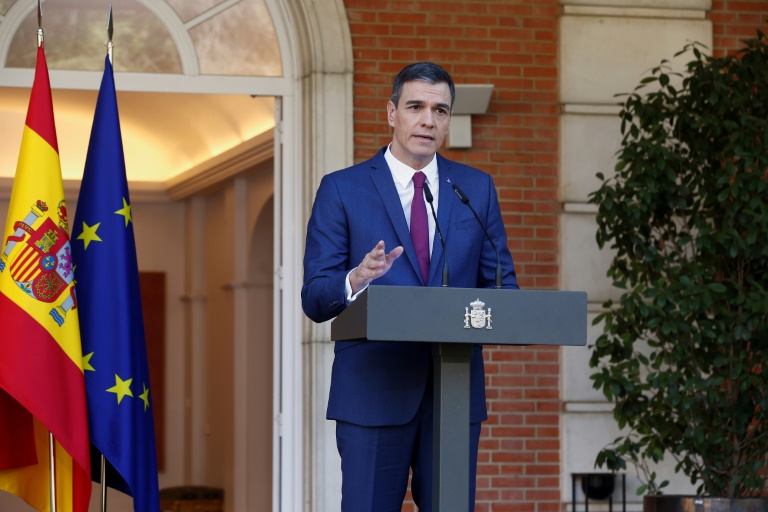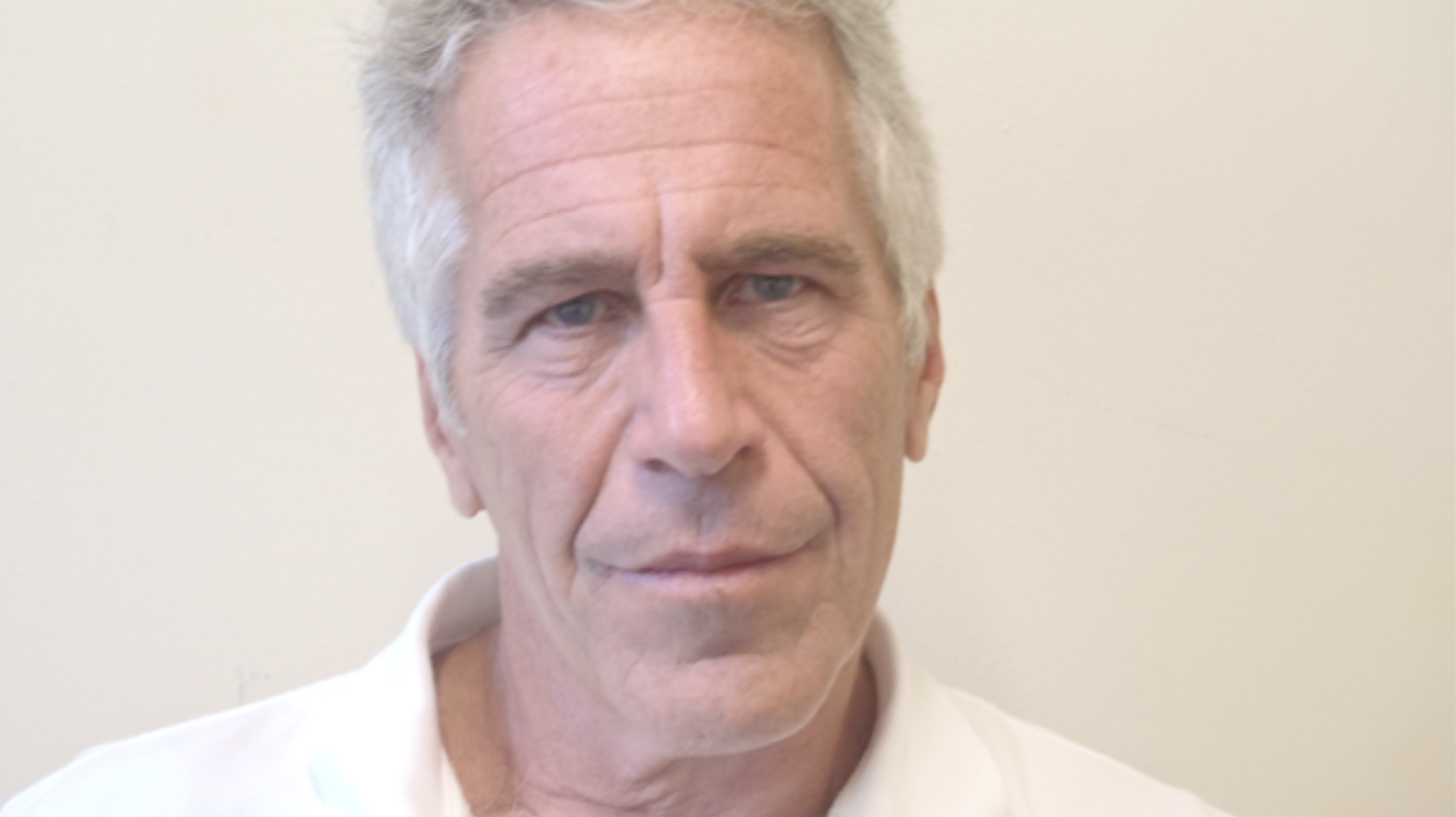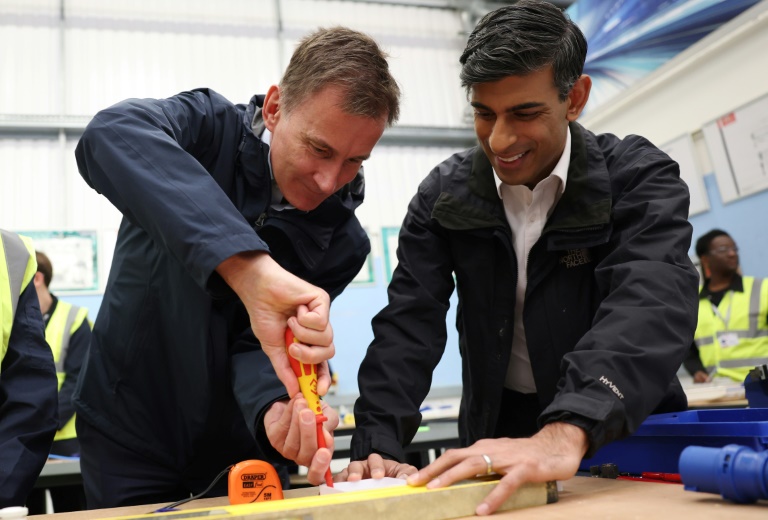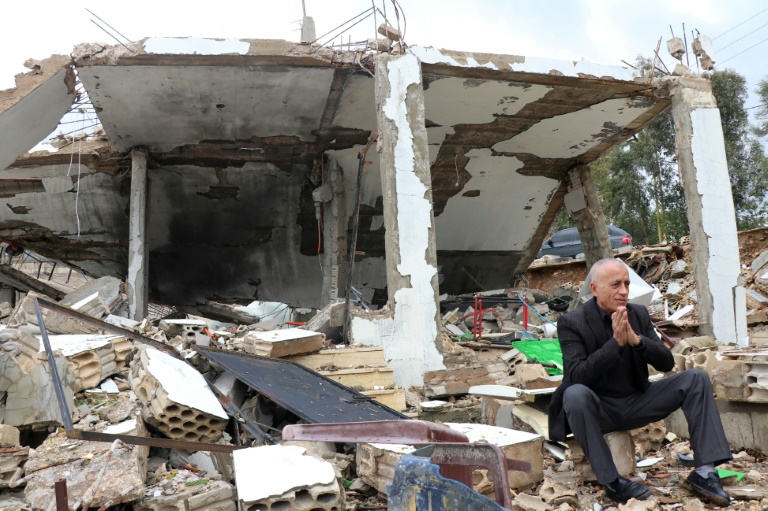Spain’s Socialist prime minister, Pedro Sanchez, who was sworn in for another term last week by floating a controversial amnesty deal for separatists, unveiled a new but largely unchanged cabinet on Monday.
Despite having vowed to slim down his cabinet, the 51-year-old kept the number of ministerial posts at 22.
Five went to his junior coalition partner, the hard-left Sumar, which is headed by Yolanda Diaz who will stay on as labour minister.
Sanchez said his cabinet was made up of “people capable of managing but also of reaching agreements and explaining them publicly”.
Budget Minister Maria Jesus Montero, Defence Minister Margarita Robles and Foreign Minister Jose Manuel Albares are among the heavyweights who are staying on in their posts.
The new faces include two people close to Diaz — Monica Garcia, a doctor and lawmaker in the regional government of Madrid who takes over as health minister, and Ernest Urtasun, who was appointed culture minister.
A self-declared feminist, Sanchez again appointed more women than men to his cabinet — 12 this time — as has been the case since he came to power in 2018.
Sanchez was sworn in Friday after securing the endorsement of a majority of lawmakers in Spain’s fragmented parliament to form a minority coalition government with Sumar.
His Socialists finished second in an inconclusive July general election but he reached deals with several smaller parties to back him for another term, including Catalan and Basque separatists.
To win the support of two Catalan separatist parties, he agreed to grant an unpopular amnesty to hundreds of people facing legal action for their role in Catalonia’s failed 2017 independence bid.
That attempt, which involved a referendum on secession for Catalonia which was banned by the courts and was marred by violence, sparked Spain’s worst political crisis in decades.
Several polls show more than half of all Spaniards oppose the amnesty.
It has prompted a wave of nationwide protests, including one on Saturday in Madrid which drew around 170,000 people, according to police.
Cries of “Sanchez, traitor”, “Sanchez in jail” and “Catalonia is Spain” could be heard from protesters of all ages who carried Spanish and other European flags distributed by the conservative Popular Party (PP).
Sanchez has promised a series of social measures during his new term, including further increases to the minimum wage and reducing the working week to 37.5 hours from 40 hours.
But analysts say he will struggle to pass legislation since the various left-wing and regional parties that backed him have radically different ideologies.
Alberto Nunez Feijoo, leader of the PP which won the most seats but fell short of a majority in July’s polls, predicted Sanchez’s government would be short-lived.
In an interview published on Monday in daily newspaper El Mundo, Feijoo said it would be a mere “parenthesis”.
“Sanchez is chained to his partners and it is impossible to govern Spain in chains,” he added.
Feijoo failed to obtain sufficient support from other parties to become prime minister.
Federico Santi, senior analyst for Europe at Eurasia Group, predicted Sanchez’s new government “is likely to prove stable at least in the near-to-medium term” since the two Catalan parties “will be intent on securing the amnesty” and neither they nor Sanchez’s Socialists “have any appetite for repeat elections at present”.
“Nonetheless, the amnesty has rekindled animosity over the independence issue and raises the risk of more tensions later on, particularly around Catalan regional elections in 2025,” he added in a research note.







